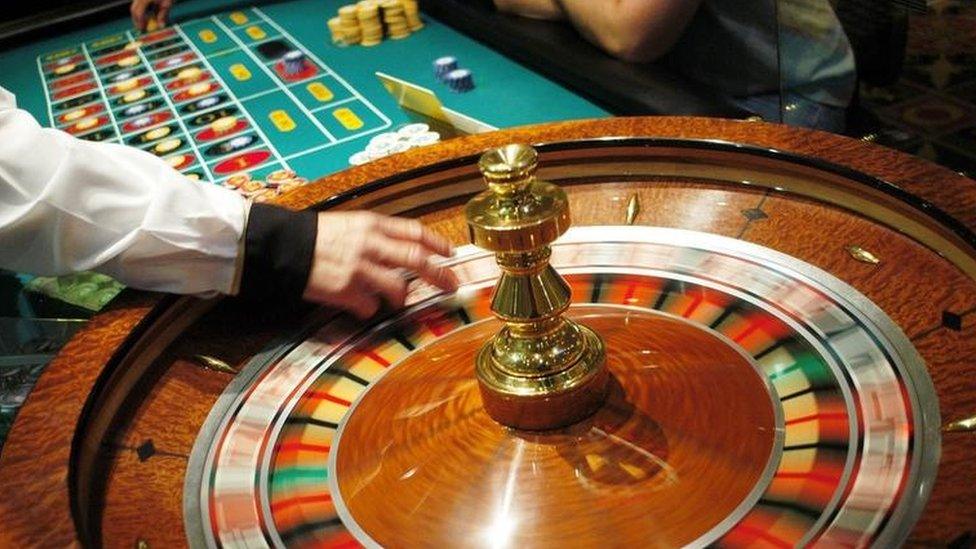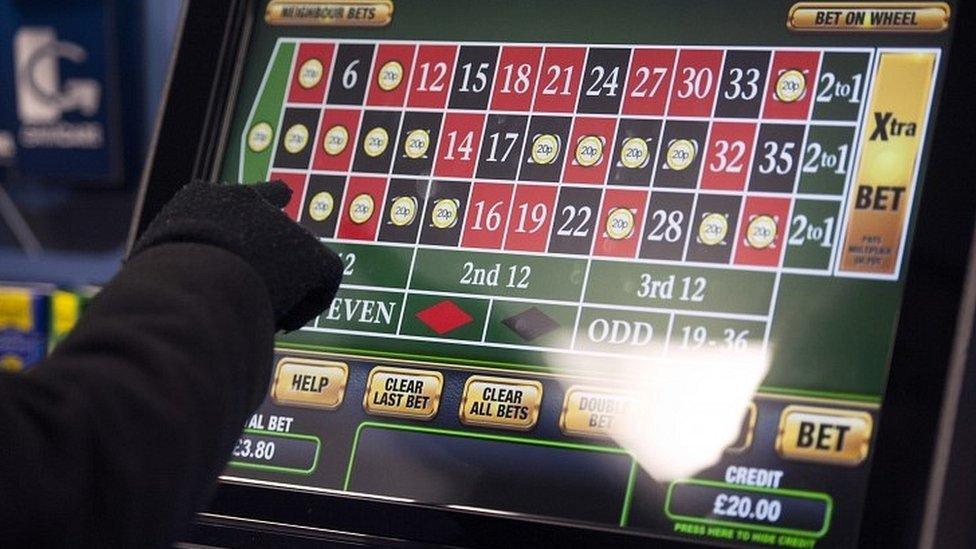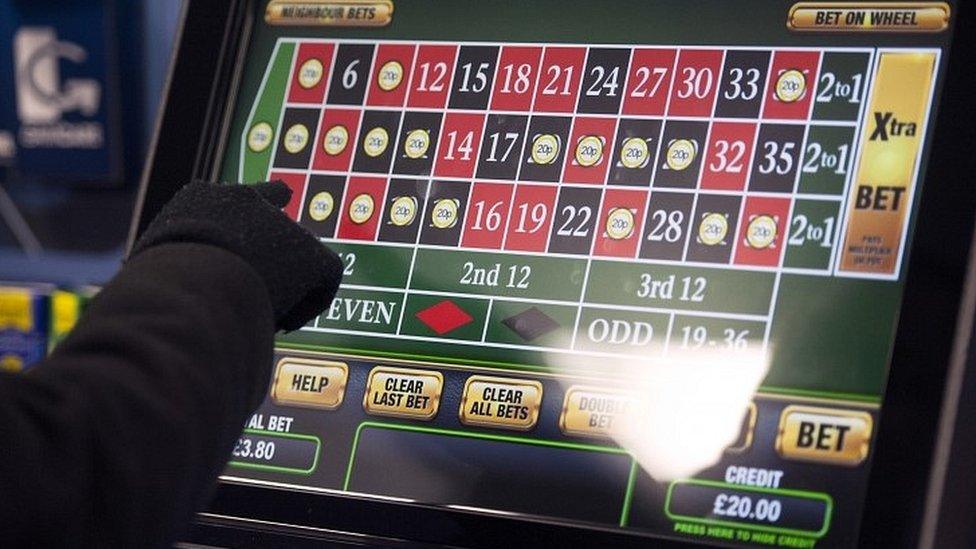Gambling addict: 'No rehab for me because I'm a woman'
- Published

Prison, homelessness and no money to buy food, Sarah Grant has been in dire straits.
"My relationships were a mess, my job was a mess."
It is a story of addiction which will be familiar to many - but perhaps less so in relation to gambling.
But Ms Grant, from Cardiff, has struggled for years to get the support she feels she needs - or even to have her addiction recognised and taken seriously.
"I'm sick of people sugar coating it," she told BBC Wales.
"People are struggling, they're asking for help, and they aren't getting it."
The 31-year-old does not remember the first time she gambled - but she became aware of it as a child when she played in arcades to win tokens for prizes - and developed a fascination from there.
"I think the fact it entertained me, attracted me, it looked after me, nurtured me."
And, as she got a little older, growing up in a pub environment, Sarah developed a love for gambling machines.
"My dad said I would keep asking for another pound, I remember just having a fascination for going on machines," she said.
And feeling nurtured by addiction is a theme Wynford Ellis Owen, from the Living Room charity in Cardiff, said is common.
"It's what I call 'mum-ism' or 'dad-ism'," he said.
"It's looking for nurture and looking for identity and what you need to do [in treatment] is discover what's really there.
"I'm not interested in why people gamble, I'm not interested in why people drink, I'm interested in why they feel the need to flee from themselves."
'Only for men'
Ms Grant said she has now been an addict for 15 years.
"I did it in secret for a long, long time," she said.
"It came to a head when I ended up committing a crime and being arrested to fund it [the addiction] and I went to prison.
"Then I was homeless, I lost everything, my relationships were a mess, my job was a mess. I messed up - messed my life up."
She applied for a 12-week stint in rehab, but was told the facility was only available to men and instead she could apply for a two-night retreat in England for women.
But when she tried, she was told there were only 10 places available, twice a year, for the whole of the UK, and her application was not successful.

Figures show about 1.1% of the Welsh population are problematic gamblers
And while Sarah has felt supported by the Living Room, she said most addiction charities are focused on drugs or alcohol with gambling "back in ancient times" in terms of available support.
Mr Owen said he did not feel rehabilitation or intervention was effective, and research indicated peer-based treatment and getting to "the root" of what underlies the problem was a better method.
Ms Grant said she is still affected by her addiction.
"I am struggling on a daily basis, the last few months I've got back to quite a cycle and I've got nowhere to go, nowhere to reach out to because there is nothing there.
"I have left myself without money to eat.
"The situations I have been in, I do believe, if it was an alcohol addiction, I believe I could have been in rehab by now."
'Wrong impression'
Ms Grant is to speak at a conference in Cardiff Bay, organised by the Beat the Odds initiative on Wednesday.
"I'm trying to tell my story to help others and get the message out because there's not much help out there.
"The different places you can go, the support is mainly for other addictions, because the recognition of gambling as an addiction is behind.
"I think people have the wrong impression of gambling, it's so accepted socially and it's everywhere you look - cartoon characters advertising it on TV.
"Nobody sees the problem with it - but dig a little deeper, and there are people who are actually dying and nobody is talking about them."
A Welsh Government spokeswoman said: "Many people participate in gambling activities without any apparent problems, but we recognise that for some people, gambling becomes an addiction which leads to harmful health and social impacts.
"While the regulation of gambling is not devolved, we are always keen to explore what more we can do to tackle gambling addiction and the impact it has on communities and families in Wales."
- Published21 June 2017

- Published25 May 2017
